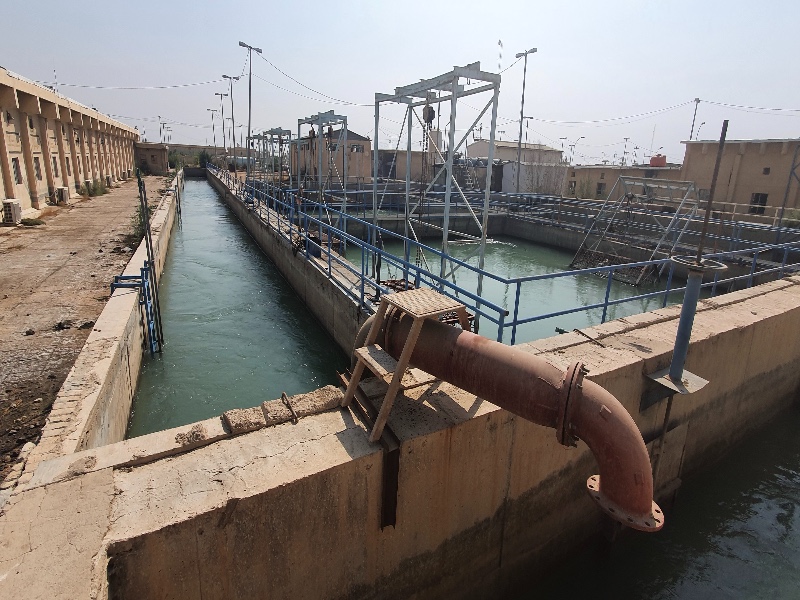
R-Zero Water Treatment Plant, Basra, 2020. Photo: Azhar Al-Rubaie.
In summer 2018 protests erupted in Basra amidst a water contamination crisis, with over 100,000 admitted to hospital by the end of October. While the grievances aired included chronic corruption and unemployment, the toxic waters, clogged with sewage and other waste, served as the focus of people’s anger. The public health emergency in Basra was only one manifestation of a water supply crisis in the governorate, which has also seen a collapse in agricultural yields as a result of increased water salinity, lower river levels and reduced rainfall. These physical impacts mask a longer-term deterioration of water governance in Basra, which has roots in previous decades of armed conflict and sanctions, as well as upstream damming of the Tigris, Euphrates and Karun rivers.
The research focused on the extent to which water infrastructure interventions by government and international donors are sustainable and meet growing water supply needs. It examined the vulnerability of the public water network, focusing on compact water treatment units, which supply 83% of treatment capacity across Basra governorate and 92% in Basra city. There are major constraints to the effective operation of compact treatment units, including unreliable supply flows and old distribution networks. Their operational capacity is also limited by under-investment in their maintenance and governance failings. There is a pressing policy need to diversify water sources for Basra and improve the efficiencies of treatment technologies.
This project formed part of the Conflict Research Programme, funded by the UK Department for International Development to provide research and policy advice on how the risk and impact of violent conflict might be more effectively reduced through development and governance interventions.
Project Outputs
Research Team
Michael Mason | Principal Investigator
Michael is the Director of the LSE Middle East Centre and Associate Professor in the Department of Geography.
Zainab Mehdi | Research Assistant
Zainab is the Research Assistant on the LSE Middle East Centre project Water Governance in Basra.
Azhar Al-Rubaie | Project Researcher
Azhar is a freelance journalist and researcher based in Iraq, specialising in politics, health, society, wars and human rights.